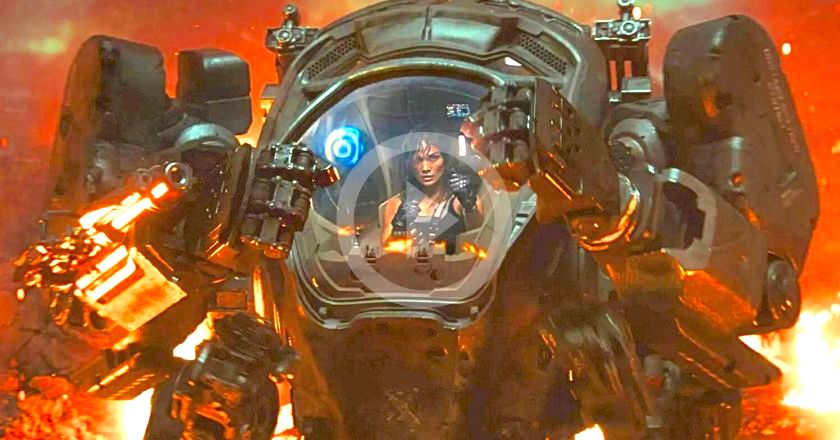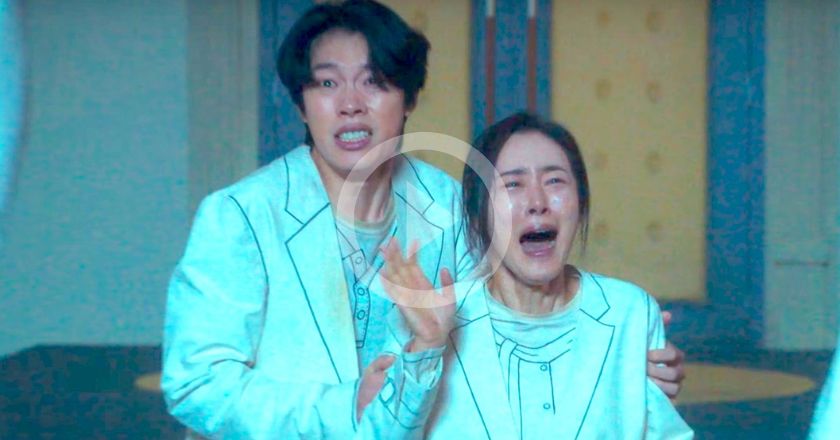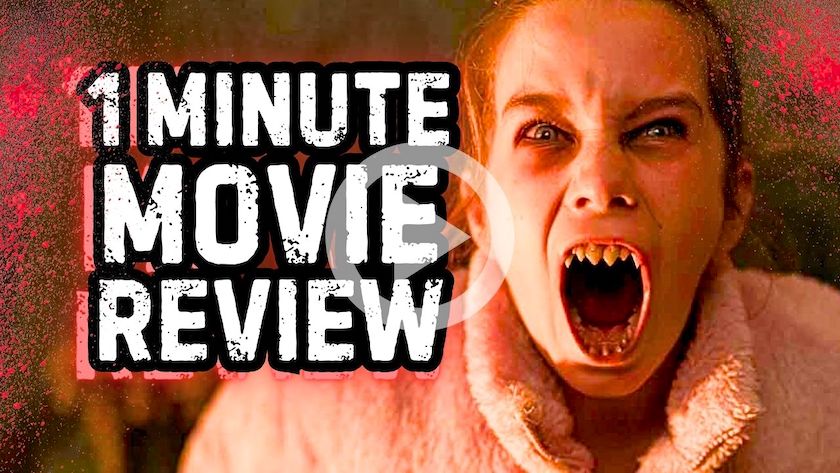
Electric Dreams is a new anthology TV series based on the works of science-fiction author and visionary Philip K. Dick. If his name doesn’t immediately jump out at you, some of the films based off his works might, namely: Blade Runner, Total Recall, Minority Report and A Scanner Darkly. If you are familiar with any of these pieces, or any of Dick’s other works, you’ll know that his penchant was for darkly futuristic, paranoia-laden dystopian worlds that explored many social and political themes (and altered states of mind, to be sure). The Hood Maker is the first instalment in this 10-part series and is written by Matthew Graham (Life on Mars, Doctor Who) and directed by Julian Jarrold (Brideshead Revisted, A Royal Night Out). Before we get cracking, there are clearly parallels to draw between this new series and the rising tide that is the Black Mirror anthology series, and Electric Dreams looks to be every bit as clever and provocative.
What is immediately noticeable (and great) about this episode is that it doesn’t waste any time with hand-holding preamble. The opening scene shows a grimy, darkened city where unused laptops are jammed into the corners of run-down office blocks, and typewriters sit upon the desks of its workers. It is clear that technology is on the fritz, and this is developed efficiently and without the need for overblown, exposition-laden dialogue. Tick. A collective of riot police, equipped with batons, helmets and shields, stand uneasily just beyond a heaving and restless crowd.
Behind the riot guards’ protection, a young woman ““ Honor, played by Holliday Grainger (The Borgias) ““ with a red scar across one eye begins scanning the crowd and rattling off a list of their emotions and motivations, searching for anyone who intends to cause serious harm. It is clear she has telepathic abilities, and also that the riot is a protest against people like her. More “show not tell” ““ another tick. She reports her findings to Agent Ross (Richard Madden, Game of Thrones), revealing that she’s working for (or with) a government agency of one description or another. Suddenly, we are in the opening few minutes of a show and yet we are well and truly integrated with the backstory and current situation.
Members of the crowd begin noticing that they are being “read” and turn angrily towards Honor, with the situation further intensifying as a hooded man forces his way through the maddening crowd and launches a Molotov cocktail in her direction. Agent Ross chases him down, removes his creepy-looking hood and walks him forcefully into an interrogation room, where he is then strapped down. Honor enters, to the alarm of the captured man, and gives us a taste of her powers by reading his innermost, and in this case sickly, thoughts. The way she controls him with her psychic powers is unnerving to say the least, and thus the inner mechanics of her relationship with the Agency suddenly become both unclear and highly intriguing ““ just what are they collectively working toward?

Agent Ross then reports in to Senior Agent Okhile (Noma Dumezweni, Frankie) and it quickly becomes apparent that they are using Honor as a weapon against the anti-telepathy protestors ““ to the Agency she’s a combination of google maps and a social media analytics bot. We also learn that Honor can communicate seamlessly with all the other “teeps” (a pejorative term for telepaths, used by the “normals”), and that if a teep is in pain or suffering, then they all are. Herein lies the ticking time-bomb, as the teeps are loathed and feared by the normals and the Agency alike. The present situation is unstable ground for all involved. Amidst this churning and escalating scenario, Ross appears conflicted as to his directives ““ which, as later confirmed, are to basically stop at nothing in order to manipulate, control and exploit Honor’s impressive powers ““ as Honor is a sweet and gentle soul (and attractive, let’s be honest), and she suffers real and regular pains as a result of her unwanted “gifts”. Equally stimulating is the revelation that Ross is immune to being read, and what that may mean as we push forth towards the conclusion of this exciting tale.
The final piece of this jagged puzzle is the emergence of the hooded masks ““ first shown on the Molotov cocktail nutcase. Whoever wears one cannot be read by the telepaths, presenting a common threat between the teeps and the Agency. Who, where and how are they being created? There are plenty of loose ends to tie up, and a large dosage of intrigue here.
The one criticism I have for this episode lies in its resolution, as circumstances enable Honor to try on one of the masks, and it instantly provides her with a barrier between the thoughts of all around her. All falls quiet, and she exhales in relief. Despite this, the teeps target and corner the creator of the hoods, which seems at odds with the episode’s central focal point ““ the teeps did not ask for their “gifts”, nor do they want them.
Nonetheless, it is a very interesting, well-told story that effectively balances out-there “sci-fi-ness” with impactful and relevant social observations. It is at its most apt and poignant when it makes commentaries upon the aspects of trust and loyalty in relationships, using the backdrop of telepathy (and immunity to it) to effectively reinforce and discuss these points.
The performances are very good throughout, and largest props are reserved for Holliday and her portrayal of Honor. Given her powers and objectives, she could have been a one-dimensional and cold or closed-off character, however an innate and refreshing warmth shines through her “gifts”, and tugs at your emotions, asking uncomfortable questions as to who is right and who is wrong.
I’m connected. Let’s see what comes up next week!
THE REEL SCORE: 8/10
SaveSave
SaveSave







